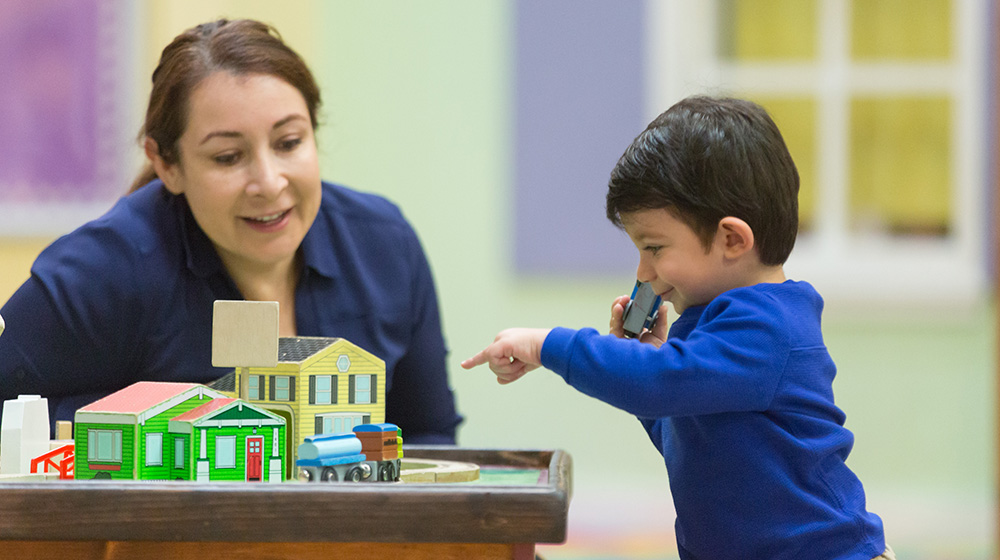“ When you teach a child something, you forever take away his chance of discovering it for himself. ” – Jean Piaget
Last week in our “Let’s Talk Kids” parenting webinar series, child development professor Tom Chiaromonte of Fullerton College shed light on what it takes to raise a critical thinking child. As we jump into online learning, limited social interactions, and the unc ertainty of this fall, h ow can parents support independence, innovation, and problem-solving at home? Chiaromonte has highlighted the most important things you can start doing today:
Maintain Consistency in Care Giving
Before your child can comfortably process and explore their immediate environments, a sense of security and safety needs to first be established. Timely responses to our child’s requests and exclamations are crucial to developing a sense of trust within your child. When childre n understand that their needs will be c onsistently meant, they are free to shift focus from the m self to discover ing th e world around them.
Brain Building Tip:Set a specific time for your family to share meals together. Knowing that breakfast is eaten at a certain time for instance, communicates to your child that they do not need to worry about when they will feel full again.
Allow for Independence
“I can do it myself!” echoes the home of any parent with a toddler aged child. The strong desire to have autonomy over one’s actions and choices emerges at an early age. Allowing room for the urge for independence to grow provides your child wit h ownership over their bodily functions and thoughts. This developing sense of control influences their ability to think for themselves and make decisions.
Brain Building Tip:Have your child choose what they wish to wear each day. Layout a couple shirts, pants etc. and have them choose what outfit they see themselves in today.
Provide Choices
Providing your child with opportunities to make choices builds their decision-making skills. Be mindful of choice making language , and structure your words to promote working together in making choices. When children can decide for themselves who they wish to play with, where they sit, what they eat, and which activities to engage in, we allow them to form their own identity and preferences. Understanding the consequences of choice as well, for instance choosing not to eat when the rest of the family is eatin g and being hungry later in the day , helps children realize the impact of the choices they make.
Brain Building Tip:Watch out for choices that might jeopardize the well-being of your child. For example, if it is cold outside and a jacket is needed to play, ask your child “which jacket would you prefer?” rather than “can you grab your jacket?”.
Ask Open Ended- Questions
Promote your child’s critical thinking by asking open-ended questions during play. By encouraging language in way that asks your child to evalua te what they are doing and why, we encourage them to connect their thoughts and actions. “Why did t hat happen ?” and “What do you think will happen when you press that?” prompt your child to consider cause and e ffect .
Brain Building Tip:Instead of asking your child “How was your day today” and receiving a one worded answer, encourage conversation through thoughtful language. “Tell me about your day” or “Can you share with me what was the best part of your day” requires a more in-depth answer.
Be a Facilitator, not a Provider
As a parent, you are your child’s first teacher. Rather than simply providing your child with answers when questions are asked, guide your child to finding the information themselves. So much is learned through the process of discovery and inquiry. True learning occurs when your child expresses an interest in something and is guided into finding out more. Here is where critical thinking truly manifests, as your child begins to connect their observations about the world to concrete knowledge and info rmation .
Brain Building Tip:If your child asks you “where does the sun go each night?”, rather than simply providing your child with the answer, take some time to explore the concept of space. Talk about the planets, earth’s relation to the sun, moon, and stars. Or even yet, camp out with your child in the backyard as you watch the sun disappear at night and reappear in the morning. Finding creative ways to explore topics together makes learning all the more fun.
Looking for more activities that build better brains? Be sure to check out our Play @ Home Adventure guide that can be found here . For more information on Pretend City’s parenting webinar series, register for “Let’s Talk Kids” here .









